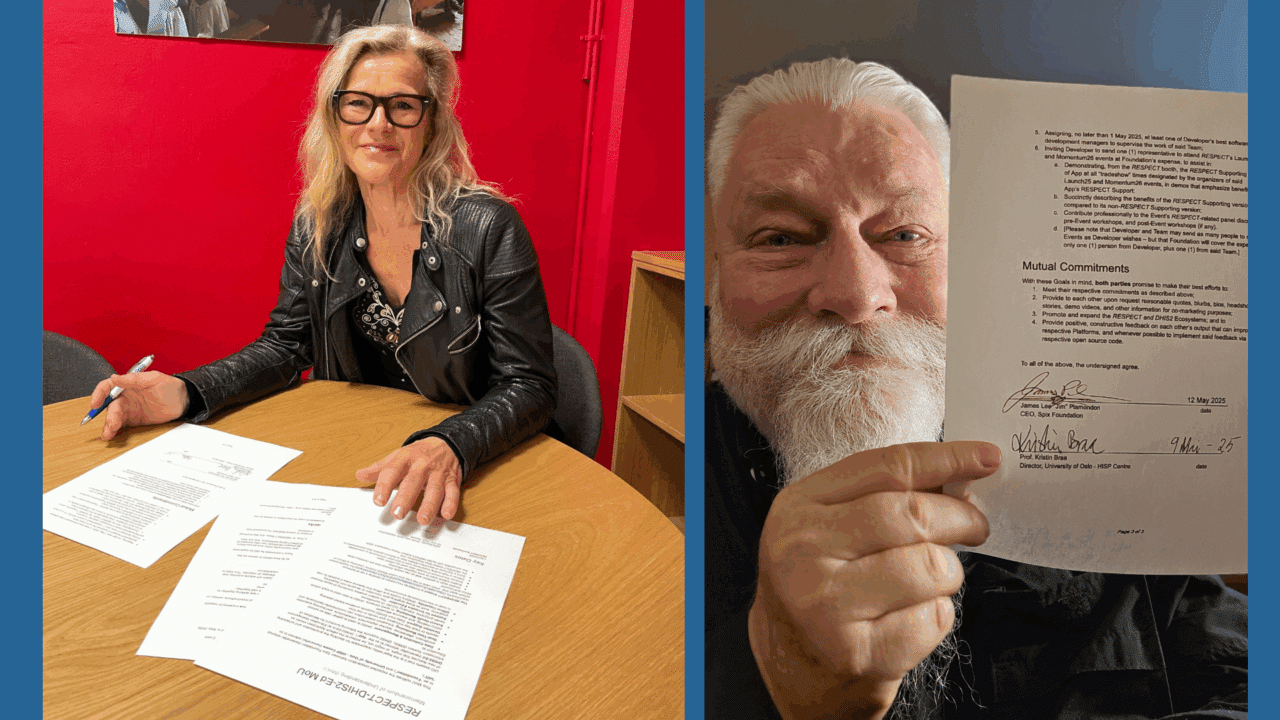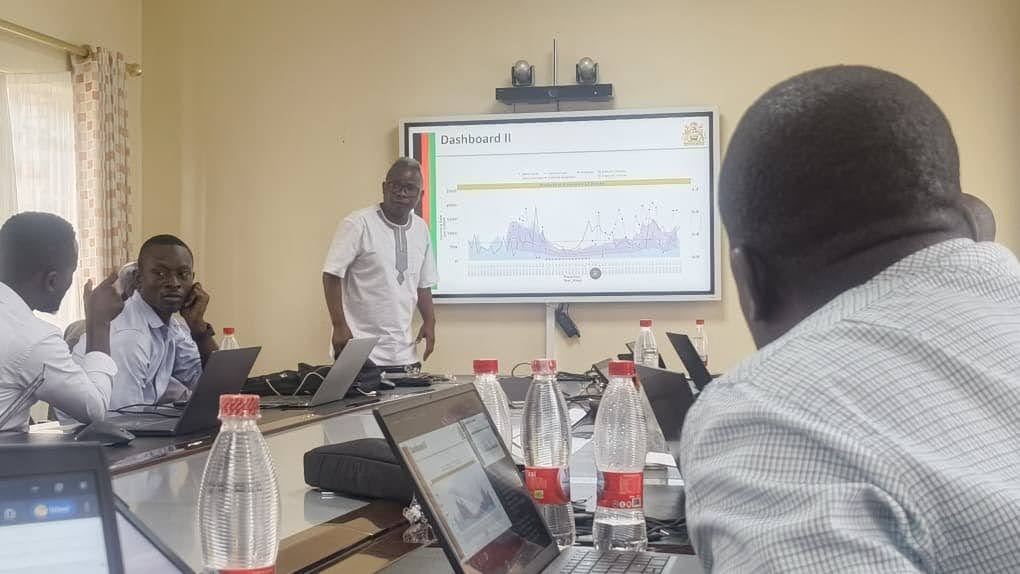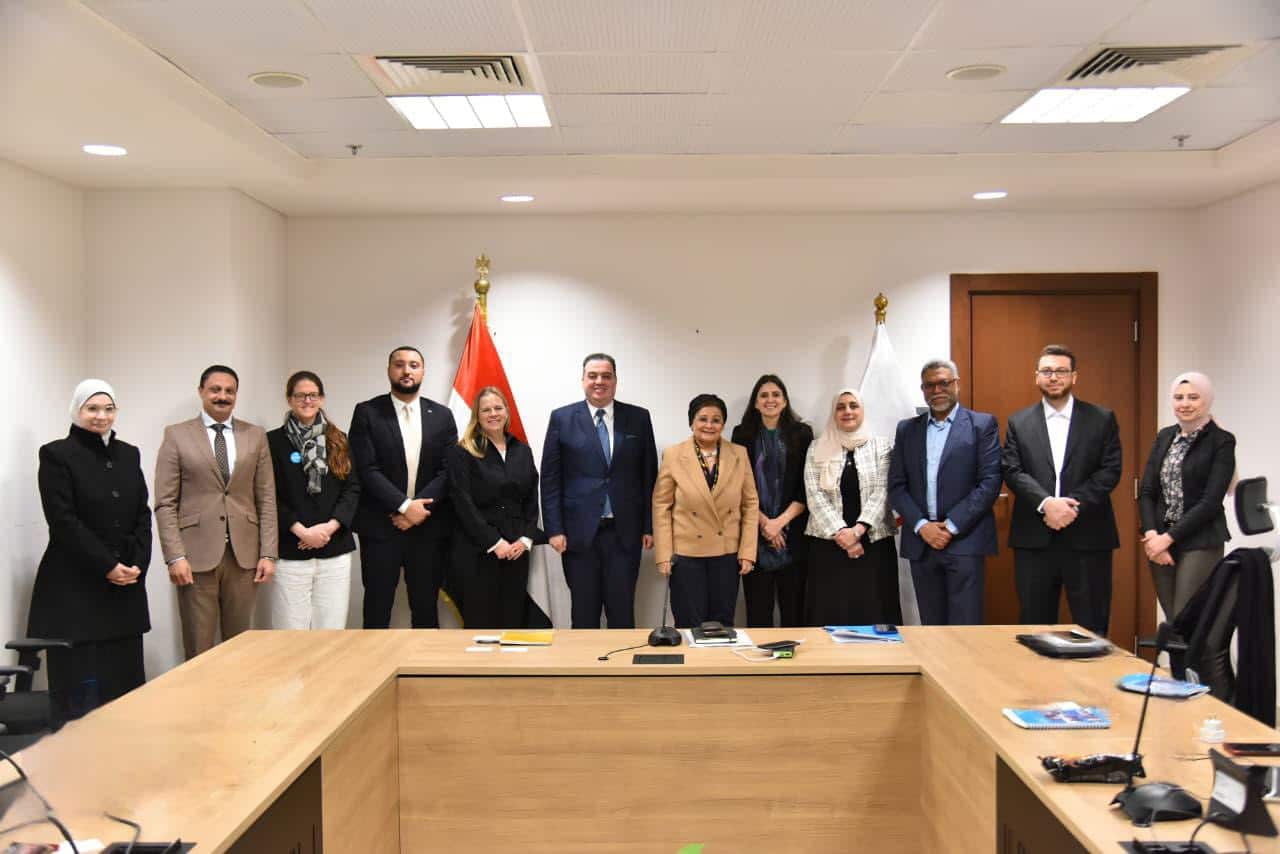The DHIS2 Annual Conference takes place from 15-18 June 2026! Learn more

HISP UiO and Spix Foundation Sign Agreement to Strengthen Digital Education Tools in LMICs
The Spix Foundation and the HISP Centre at the University of Oslo have signed a new agreement to collaborate on digital education technology in low- and middle-income countries with implementation partner Saudigitus.
The HISP Centre at the University of Oslo (HISP UiO) and the Spix Foundation have announced a new partnership to improve the quality and interoperability of digital education tools in low- and middle-income countries (LMICs). The agreement sets out a framework for collaboration on the RESPECT project and DHIS2 for Education, an open-source platform that helps Ministries of Education use data for planning, decision-making, and monitoring.
The partnership will enable DHIS2 for Education to support RESPECT’s xAPI-formatted data stream, allowing integration with other mobile-based tools and contributing to a more cohesive digital education ecosystem. Funded by the Spix Foundation, RESPECT defines technical standards to ensure education apps function well in LMICs, work together efficiently, minimize data use, and operate offline—aligned with the African Union’s EdTech Policy Framework 2025.
The collaboration brings together the strengths of the RESPECT project, the technical expertise of DHIS2 implementation partner Saudigitus, and the DHIS2 for Education platform. It goes beyond improving education data systems, addressing global efforts to make digital courseware more impactful and accessible in LMICs.
A May 2025 report commissioned by the Spix Foundation and mEducation Alliance highlights both the promise and the persistent challenges of digital courseware in Africa and similar contexts. While digital courseware is increasingly recognized as a powerful tool to improve basic literacy, numeracy, and other learning outcomes, significant barriers remain. These include infrastructure gaps, limited connectivity, solutions that work both online and offline, lack of interoperability, and the absence of robust quality assurance standards.
Key Areas of Collaboration
Technical Integration: The collaboration includes leadership from Saudigutus to develop xAPI data stream compatibility within DHIS2 for Education and demonstrate the functionality at upcoming RESPECT events, Launch25 and Momentum26.
Knowledge Exchange and Events: Partners will participate in technical forums, webinars, and events, contributing expertise and showcasing RESPECT-compatible versions of DHIS2 software.
Sustainable Impact: By supporting open standards, promoting cross-platform compatibility, and amplifying the voices of Ministries and practitioners, the partnership aims to build a more inclusive and effective digital learning ecosystem.
Beyond technical integration, the collaboration advances a shared vision for digital courseware that is accessible, interoperable, and grounded in real-world needs. Working together, Saudigitus, HISP UiO, and the Spix Foundation aim to improve data access for school leaders, support system-wide planning, and enhance user experience in low-resource settings.
Background
The Spix Foundation leads the RESPECT initiative, which defines interoperability and performance standards for mobile edtech apps in LMICs and supports an open ecosystem of developers, implementers, and education stakeholders.
HISP UiO coordinates the development of the open-source DHIS2 platform and provides leadership in digital information systems for global health and education. Through DHIS2 for Education, HISP UiO supports Ministries of Education in building robust education management information systems to manage data on enrollment, attendance, school health, infrastructure, and inclusive education programs.
Saudigitus leads the development of SEMIS; a free and open source application tracking individual teacher and student data, developed through collaboration with Ministries of Education in the global south. Saudigitus specializes in the development of Information Systems for various areas of social interest, including health, education, water and sanitation, justice, agribusiness and social protection.


